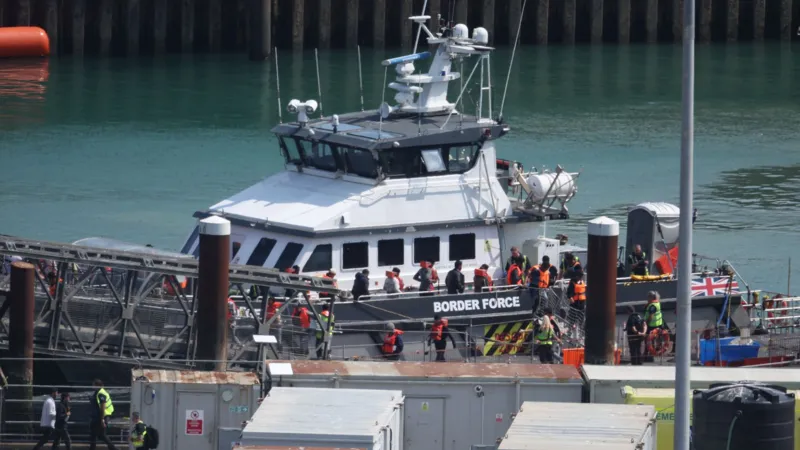The UK has officially detained the first group of migrants under a new agreement with France, aimed at reducing illegal Channel crossings. The “one in, one out” deportation scheme started this week, with migrants seen arriving in Dover wearing life jackets as they left Border Force boats.
According to the Home Office, 155 migrants crossed the English Channel on Wednesday alone, the same day the pilot began. Those detained will be moved to immigration removal centres and may be returned to France in the coming weeks. However, no exact number of detainees has been confirmed.
Home Secretary Yvette Cooper confirmed that the new system is already in motion. She warned that criminal networks must not exploit any details of the operations. “Transfers to immigration centres are under way. From now on, anyone arriving this way can face immediate detention and return,” she said.
When could the first migrants be sent back to France?
Cooper explained that some removals could happen in just a few weeks. She insisted that France is considered a safe country and stated the UK government would challenge any legal attempts to stop the returns. The goal is to send a strong message to people smugglers and those planning illegal journeys.
The pilot agreement was made during a meeting between UK Prime Minister Sir Keir Starmer and French President Emmanuel Macron in July. The plan will run for 11 months and allows for the UK to return certain migrants to France, while accepting the same number of approved asylum seekers from France who did not attempt to cross illegally.
Sir Keir Starmer also spoke on the first deportations, saying, “If you break the law to enter this country, you will be sent back. I will stop at nothing to protect our borders.”
Under the deal, the UK aims to identify migrants for return within three days of their arrival. France will respond to those referrals within two weeks. At the same time, France will nominate approved asylum seekers who meet security and eligibility rules to travel to the UK safely.
Those selected will apply online through a Home Office system. If accepted, they will have three months in the UK to claim asylum or request a visa. During this time, they won’t be allowed to work, study, or receive benefits, just like other asylum seekers.
A public information campaign will soon launch in northern France to inform migrants about the new process. So far, more than 25,000 people have made the dangerous Channel crossing in 2025—a nearly 50% rise compared to this time last year.
By law, asylum seekers cannot be returned to their home country until their claims are processed. However, they can be sent to safe third countries that are willing to review their applications, such as France.
Some critics, including members of the Conservative Party, argue that this new approach is not strong enough. They believe the Labour-led plan is weaker than the previous government’s proposal for deporting people to Rwanda. Shadow Home Secretary Chris Philp called it a “foolish error” to cancel the Rwanda deal.

